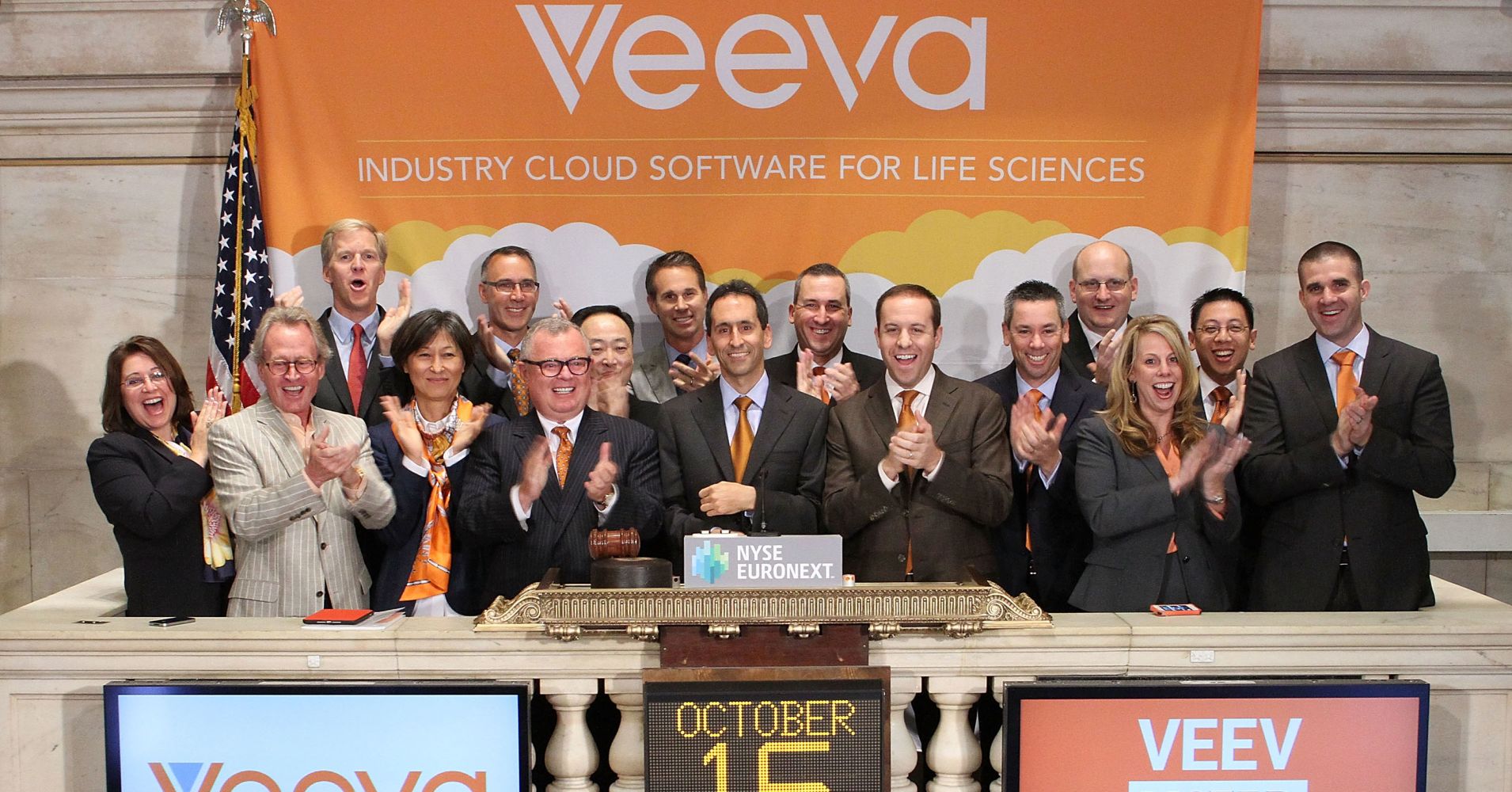
Veeva has been on a tear.
The company, which provides cloud software for the medical and life sciences industry, has quintupled in value over the last three years, with the shares rising 3.9 percent on Friday to $113.27. The stock has erased all of the October slump and is trading at a record alongside a number of other subscription software companies, including Workday, ServiceNow, Okta, Twilio and Atlassian.
Veeva is poised this year to become the fifth cloud software company to reach $1 billion in annual revenue, following Salesforce, Workday, ServiceNow and Dropbox. But Veeva is unlike any of its billion-dollar predecessors in that it’s focused on one particular market. Founder and CEO Peter Gassner says the company is such an anomaly that there’s never been a “natural acquirer.”
Veeva’s software helps pharmaceutical developers like AstraZeneca, GlaxoSmithKline and Bayer move to the cloud with products that are custom built for the intricacies of their highly regulated industry. It’s also working with companies pursuing clinical trials, allowing them to digitally monitor their progress, while helping them track and analyze their data.
Gassner started the company in 2007 after a career in the software industry at IBM, PeopleSoft and Salesforce. In an interview with CNBC this week, he said the company is focused on 2025, by which point analysts expect Veeva to be well past $2 billion in sales. He’s got three main goals that he shares with employees.
First off? “We have to still be Veeva.”
The company currently has over 2,400 employees, and Gassner said that it could have 10,000 by then. At that size, “how do you have the special culture, the secret sauce?” he said. “How are we able to change and keep morphing” and be a place “where people authentically like to work? It’s not easy to do.”
The second goal is “to have a lot of room to grow.” Veeva sells into the $3.5 trillion health-care market, but the players in that industry tend to move slowly when it comes to technology. Veeva has to keep developing products that save companies money and make them more efficient, and must be able to serve a wider array of customers.
The third goal relates to internal financial projections, which Gassner said he’s not at liberty to share. “We’re a pretty aggressive company,” he said. For fiscal 2024, analysts project revenue of just over $2 billion, according to FactSet, with $1.7 billion coming from subscription services. That’s as far out as analysts are projecting.
As part of its effort to move faster, Veeva pushed its infrastructure to Amazon Web Services beginning in late 2017 and continuing through last year. Gassner said the transition, which he described as “lock, stock and barrel,” reflected Veeva’s view that AWS has “the best product for what we need.”
Relying on AWS could cause some difficulty for Veeva customers, who may soon be competing with Amazon, depending on how deep the e-commerce giant goes into health care and life sciences. Big retailers like Walgreens and Albertsons have signed on with Microsoft Azure to avoid funding a rival company. But Gassner said that AWS is critical to Veeva and customers know that’s part of the deal.
“They know to get Veeva means you’re getting Amazon,” Gassner said.

